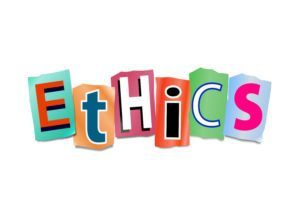 On May 5, 2016, a Massachusetts state court dismissed Gillette’s claims for breach of fiduciary duty against its former in-house IP counsel who left Gillette and went to work for a competitor, where he used allegedly privileged information gained during his prior employment and helped his new employer analyze and avoid infringement of Gillette’s patents—including patents over which he oversaw prosecution. The court held that Gillette’s amended complaint failed to state claims for breach of fiduciary duty as a matter of law. Consequently, the court dismissed with prejudice Gillette’s claims against its former in-house attorney. See The Gillette Co. v. Provost, No. 1584CV00149-BLS2 (Mass. Super. Ct. May 5, 2016) (order granting motion to dismiss). This is the second significant decision from a Massachusetts state court regarding patent ethics and conflicts of interest in the last six months; the first was the Supreme Judicial Court’s decision in Maling v. Finnegan Henderson, discussed in our posts here, here and here.
On May 5, 2016, a Massachusetts state court dismissed Gillette’s claims for breach of fiduciary duty against its former in-house IP counsel who left Gillette and went to work for a competitor, where he used allegedly privileged information gained during his prior employment and helped his new employer analyze and avoid infringement of Gillette’s patents—including patents over which he oversaw prosecution. The court held that Gillette’s amended complaint failed to state claims for breach of fiduciary duty as a matter of law. Consequently, the court dismissed with prejudice Gillette’s claims against its former in-house attorney. See The Gillette Co. v. Provost, No. 1584CV00149-BLS2 (Mass. Super. Ct. May 5, 2016) (order granting motion to dismiss). This is the second significant decision from a Massachusetts state court regarding patent ethics and conflicts of interest in the last six months; the first was the Supreme Judicial Court’s decision in Maling v. Finnegan Henderson, discussed in our posts here, here and here.
Factual Background
For 17 years, Chester Cekala worked as an in-house patent attorney for Gillette. Mr. Cekala left Gillette in 2006. In 2012, Mr. Cekala joined ShaveLogic, Inc. where he began working on patent matters.
In 2015, Gillette sued ShaveLogic and four former Gillette employees who had gone to work for ShaveLogic. The original complaint alleged that the defendants took Gillette’s confidential information and misappropriated its trade secrets for the benefit of ShaveLogic.
In 2016, Gillette filed an amended complaint adding Mr. Cekala as an additional defendant. According to Gillette’s amended complaint, Mr. Cekala had access to privileged communications and information relating to Gillette’s patents and technologies and developed “detailed knowledge” about Gillette’s patents and related licensing agreements. ShaveLogic allegedly hired Mr. Cekala to provide freedom to operate opinions regarding Gillette patents—including patents whose prosecution he allegedly oversaw—and to identify potential voids in Gillette’s patent portfolios.
 The amended complaint further alleged that ShaveLogic competes with Gillette in the market for wet shaving products and that Mr. Cekala’s knowledge of Gillette’s intellectual property portfolio and patent strategy gives ShaveLogic a “competitive edge in the market.” Mr. Cekala’s work for ShaveLogic, according to the amended complaint, is substantially related to the legal services he performed while working as counsel for Gillette. The amended complaint alleged Mr. Cekala breached his ethical and fiduciary duties to Gillette, as its former counsel, and that all of the defendants conspired to cause Mr. Cekala to breach his fiduciary duty to Gillette.
The amended complaint further alleged that ShaveLogic competes with Gillette in the market for wet shaving products and that Mr. Cekala’s knowledge of Gillette’s intellectual property portfolio and patent strategy gives ShaveLogic a “competitive edge in the market.” Mr. Cekala’s work for ShaveLogic, according to the amended complaint, is substantially related to the legal services he performed while working as counsel for Gillette. The amended complaint alleged Mr. Cekala breached his ethical and fiduciary duties to Gillette, as its former counsel, and that all of the defendants conspired to cause Mr. Cekala to breach his fiduciary duty to Gillette.
Procedural History
Gillette moved for a preliminary injunction to prevent Mr. Cekala, from providing any legal advice regarding Gillette’s patents, not only with respect to patent validity but also on infringement and scope of Gillette’s patents. Although Cekala’s non-compete agreement with Gillette had long expired, Gillette contended that Cekala’s legal advice inevitably disclosed Gillette’s trade secrets to its competitor given his experience with the company.
The Massachusetts court rejected Gillette’s position. The court noted that “if the court were to accept Gillette’s logic, Cekala would be effectively prevented from working in any legal position for a competitor in the shaving industry even though his non-competition agreement expired years ago.”
On February 22, 2016, Mr. Cekala moved to dismiss the claims alleged against him in the amended complaint for failure to state a claim. On May 5, 2016, the court granted Mr. Cekala’s motion with prejudice.
 No Former Client Conflict of Interest
No Former Client Conflict of Interest
The court noted at the outset that Mr. Cekala’s fiduciary duty as former counsel to Gillette is “narrower” than the broad and undivided duty of loyalty that Mr. Cekala owed to Gillette when he represented the company as its in-house patent counsel. Since Gillette was Mr. Cekala’s former client, his ethical duties were limited by Massachusetts law, in particular Mass. R. Prof. Conduct 1.9, to preserve his former client’s confidential information and secrets. According to the court,
Representation of a current client impermissibly conflicts with a lawyer’s duty to a former client only when the matter for the new client is both ‘adverse’ to the interests of the former client and also ‘substantially related’ to work the lawyer had done for the former client.
Gillette’s amended complaint alleged several different theories of fiduciary duty claims against Mr. Cekala. The court rejected each theory.
First, the court rejected the argument that Mr. Cekala breached any fiduciary duty to Gillette by helping ShaveLogic compete against Gillette. The court cited the Massachusetts Supreme Judicial Court’s recent decision in Maling v. Finnegan Henderson, 473 Mass. 336, 341044 (2015), which held that “a patent lawyer may simultaneously represent two clients in prosecuting patent applications for inventions that compete in the same market, so long as the claims asserted in each application are neither identical nor obvious variants of each other.”
Based on the reasoning in Maling, the Gillette court held that the mere fact that patents are in the “same space” or that products compete in “the same market” does not make the interests of the two clients “materially adverse” and that it,
necessarily follows that the interests of ShaveLogic are not ‘materially adverse’ to those of Gillette within the meaning of Rule 1.9 merely because ShaveLogic seeks to compete by selling shaving products that are designed so as not to infringe upon any patents held by Gillette.
Second, the fact that Mr. Cekala “developed expertise” regarding the scope of some of Gillette’s patents while he worked for Gillette are “beside the point” since issued patents are public documents. The court explained that, “nothing in Rule 1.9 bars a lawyer from using publicly available information” or expertise acquired while representing a former client to help a new client compete against the former client.
Third, the court rejected Gillette’s argument that Mr. Cekala’s work in assisting ShaveLogic to avoid infringement of Gillette patents—including patents over which he foresaw prosecution—breached his fiduciary duty to Gillette. The court reasoned that assisting ShaveLogic to avoid infringement was not “substantially related to” the work he performed for Gillette.
 The court distinguished between providing non-infringement opinions and validity opinions regarding Gillette’s patents. As to the latter, the court, in dicta, stated that the result could be different if Mr. Cekala was helping ShaveLogic invalidate patents he helped to prosecute and obtain for Gillette.
The court distinguished between providing non-infringement opinions and validity opinions regarding Gillette’s patents. As to the latter, the court, in dicta, stated that the result could be different if Mr. Cekala was helping ShaveLogic invalidate patents he helped to prosecute and obtain for Gillette.
In contrast, the court found, “questions about whether any ShaveLogic product or planned product infringes on a Gillette patent do not implicate information known to Gillette but not disclosed in the patent or the accompanying, and now public, patent prosecution history.” The court reasoned that the amended complaint alleges no facts suggesting anything Mr. Cekala “learned during his former employment with Gillette is substantially related to any issue likely to arise regarding whether a ShaveLogic product infringes on a Gillette patent.”
Finally, the court rejected the amended complaint’s “unexplained” allegations that Mr. Cekala disclosed and used privileged information regarding Gillette’s IP strategy as conclusory and thus insufficient to state a plausible claim.
The court concluded that any further amendments to the amended complaint would be futile. The court therefore dismissed all claims against Mr. Cekala with prejudice.
The case is still ongoing against other defendants based on other causes of action. And it should be noted the court’s decision is still subject to appeal.
Nevertheless, the Gillette decision, coupled with and coming in the aftermath of the Maling decision, provide guidance to patent practitioners regarding the scope and application of their ethical duties in providing patent-related legal services in both the current client (as in Maling) and former client (as in Gillette) settings. And while both cases, strictly speaking, are limited to Massachusetts law, they may very well provide guidance to other courts and bar regulators in other jurisdictions, including the USPTO, in interpreting the similarly-worded ABA Model Rules of Professional Conduct 1.7 (for current client conflicts) and 1.9 (for former client conflicts) in the context of patent legal services.